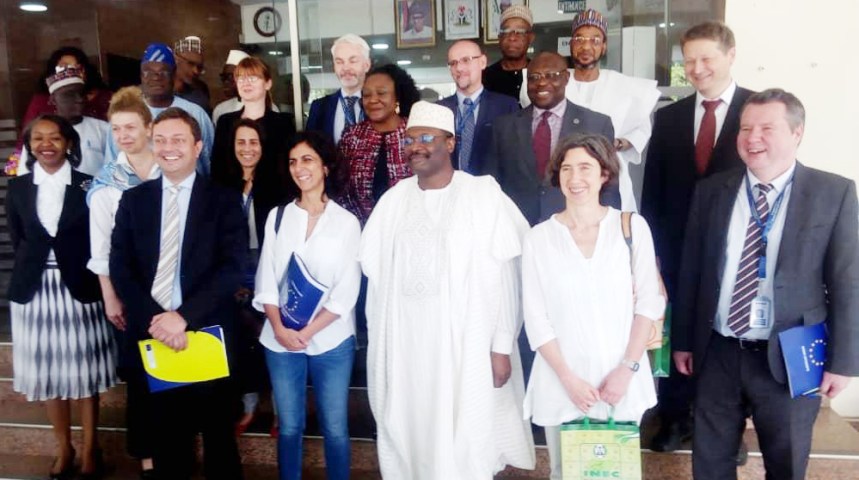The European Union Observation Mission to Nigeria has alleged that officers of the Nigerian Army prevented them from observing the conduct of polls in Rivers State.
This was contained in their preliminary report made available in Abuja on Monday. The Chief Observer, and member of EU Parliament, Maria Arena, noted that INEC had invited them to monitor the elections and make recommendations.
She said, “Observers, including EU observers, were denied access to collation centres in Rivers, apparently by military personnel. This lack of access for observers compromises transparency and trust in the process.
“In Rivers, INEC suspended until further notice the elections due to violence in polling units and collation centres, staff being taken hostage and election materials, including results sheets, seized or destroyed by unauthorised persons.
“There is no doubt that the electoral process there was severely compromised.”
Arena expressed concerns over violence, underage voting and vote-buying that characterised the governorship and House of Assembly elections in some states.
According to her, the EU deployed 73 observers to keep a close watch on voting, counting and the collation of results in 22 states. The team monitored 223 polling units in 81 collation centres.
“Although election operations improved, the elections were also marked by an overall low turnout and violence, including against election officials and voters,” Arena added.
“However, at eight polling units observed, we saw indications of vote-buying. Eight cases of obvious underage voting were also observed. Our observers saw that the counting of ballots transparent overall.
READ ALSO: Zulum promises proactive security, social reform programmes
“Positively, in almost all cases, party agents received copies of the result forms, although they were often not displayed. The environment for these elections has been difficult, with cases of violence and intimidation, including attacks on election administration officials.”
Emphasising the need for electoral reforms in the country, Arena faulted the misuse of power of incumbency by the governors of the All Progressives Congress (APC) and Peoples Democratic Party (PDP) on state-owned media houses.
She added, “While there can be many reasons for a low turnout, and it is not for me to speculate, it is surely disappointing that overall, only a relatively small portion of what is by far and away Africa’s largest electorate actually cast a vote on both election days. We hope that after these elections, parties and institutions look at what is needed to make voters want to take part in elections.”
On her part, the Deputy Chief Observer, Hannah Roberts, berated INEC for not providing specific information on the cancellation of votes in the February 23 elections.
She said, “While this number did not affect the outcome given the margin of win, this was not a good process. INEC did not provide sufficient information on these cancellations, the specific reasons for them, and the precise local government areas affected. This undermines public confidence in the process.”



Leave a Reply